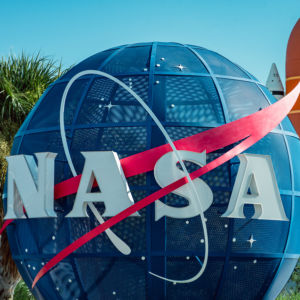America’s space agency, the National Aeronautics and Space Administration (NASA), is entering a new administration better funded than it has been in nearly 30 years. In fact, NASA pocketed more than $23 billion from the recently signed omnibus bill, or nearly $200 for each household across America.
But taxpayers have preciously little assurance that the money won’t be squandered on wasteful projects and needless cost overruns. Unfortunately, the Trump administration enabled a reckless spending culture at NASA by making unrealistic promises about going to the Moon by 2024. President Biden should create more realistic expectations about spacefaring and hold the agency accountable for irresponsible budgeting. America must avoid a black hole of profligate spending.
Americans have heard many times over the past four years that a manned mission to the Moon is around the corner. To top officials, such as Vice President Pence, the previous plan of launching a lunar mission by 2028 is “just not good enough,” because we’re supposedly in a space race and “must remain first in space in this century as in the last…” While this bold pronouncement made headlines, this deadline was likely never achievable.
John Logsdon, professor emeritus at George Washington University’s Space Policy Institute, notes, “In order to make the 2024 goal, everything in the sequence leading up to it had to go right. And in programs like this, that doesn’t usually happen.” Tight deadlines are tough when the agency in question has a long track-record of delays. For example, NASA has devoted considerable time and attention in recent years to the Orion Multi-Purpose Crew Vehicle, tasked with ferrying astronauts deep into space for manned missions.
The program schedule has already slipped more than three years and further delays are likely after additional problems were found with the system. In November, Lockheed Martin engineers found there was a problem in one of eight power and data units used by the spacecraft. For now, NASA has opted to skip repairs because the risks of repair ostensibly outweighed any benefits of averting malfunction. But the accumulation of these technological issues does not bode well for a timely launch in the future. For the program’s myriad delays and issues, taxpayers could be forgiven for assuming that the Orion Program is funded on a shoestring budget. In fact, NASA has spent more than $1.2 billion per year on this program – roughly six percent of the agency’s budget – since fiscal year (FY) 2012.
In addition, the Inspector General (IG) found, “NASA’s exclusion of more than $17 billion in Orion‐related costs has hindered the overall transparency of the vehicle’s complete costs.” These problems are partly the result of Congress being asleep at mission control. When the Orion Program experienced $900 million in cost growth from 2015 through 2019, there was no one willing to sound the alarm and hold NASA accountable for blowing through their budget. Even fiscal hawks have taken few steps to prevent generous, subjective award fees which “have hindered the program’s control of contract costs” according to the IG.
An even larger cost driver for NASA is the very idea of manned space exploration. Policymakers across the political spectrum seem to be obsessed with humans planting flags across the solar system, costs be damned. Robotic missions are a far more cost-effective way of discovering the skies above us. Cambridge Cosmology and astrophysics professor and astronomer royal Martin Rees rightly points out that, “the practical case (for human spaceflight) gets weaker and weaker with every advance in robotics and miniaturization.”
After years of overhyped manned mission-planning and spending waste, it’s time for President Biden to restore sanity to spacefaring. Biden can, and should, scrap the idea of astronauts going back on the moon, and instead prioritize probes to alien worlds. Amid shifting priorities, the new Congress needs to hold NASA accountable when spending caps are busted. America’s space agency can launch a bold new era in exploration – if our leaders take off the “space race” blinders.

